LATINO PASTORAL LEADERS
Impact Report 2022

 Cover Photo: Daniel Cobreiro Diocese of St. Augustine
Cover Photo: Daniel Cobreiro Diocese of St. Augustine


 Cover Photo: Daniel Cobreiro Diocese of St. Augustine
Cover Photo: Daniel Cobreiro Diocese of St. Augustine
“I learned that Church leaders of the future will be, increasingly, lay people and must have a heart for service. Without lacking humility, they must grow in confidence. This is especially true in the case of women,” said Marina Alonso de Gallo, a participant in the Diocese of St. Augustine.
Alonso de Gallo is one of more than 60 leaders who have taken part in the advanced leadership formation program known as the Latino Pastoral Leaders Initiative. Created in response to the growing needs of the Hispanic/Latino Catholic community raised during the V National Encuentro of Hispanic/Latino Ministry process, the 12-month-long Latino Pastoral Leaders Initiative offers comprehensive formation and leadership development that meets the unique needs and challenges faced by Hispanic/Latino leaders in the Church.
Leadership Roundtable launched the Initiative in 2021 in the Diocese of Joliet in Illinois. The program expanded with a second cohort in the Diocese of St. Augustine, Florida, and grew again with a cohort in the Diocese of Austin, Texas in 2022. The initiative will continue to be offered in partnership with dioceses throughout the U.S.
Throughout the intensive and comprehensive program, Hispanic/Latino parish and diocesan staff, volunteers, clergy, and religious women walked together to master the program’s elements. In a combination of large and small group settings, participants learned best practices in Church management, developed new relationships with their peers, created personal leadership development plans, and expanded their network within their diocese — all with the goal to grow the capacity of
Hispanic/Latino ministers to lead in myriad Church settings.
“I’ve experienced that we can work together, that we are one community, that we can go forth and respond to what God calls us to do. I loved this experience. It filled me and gave me hope,” said Betzaida Vélez, a participant in the Diocese of St. Augustine and a Service Minister of the Blessed Trinity Parish in Jacksonville, FL.
“The best part of this entire initiative was how personal it all became. It started at first, at least in my mind, as something instructional — an opportunity to gain skills, to evaluate our abilities — but it really became something personal,” Daniel Cobreiro, a participant in the Diocese of St. Augustine, shared. “This program has created a better leader and a better person in myself.”
The number of Hispanic/Latino Catholics continues to rise in the U.S. Catholic Church. In 2007, Pew Research reported that 29 percent of U.S. Catholics identified as Hispanic1. That number rose to 34 percent in 20142, and it is now estimated that about 42 percent of U.S. Catholics are Hispanic/Latino according to data extrapolated from the 2020 Census of American Religion3 .
According to the Fall 2022 report from The Center for Applied Research in the Apostolate at Georgetown University (CARA), of the lay leaders enrolled in Lay Ecclesial Ministry Formation Programs, 40 percent are Hispanic4. Among U.S. diaconate formation programs, 23 percent were offered
in Spanish5. And 22 percent of seminarians scheduled for ordination to the priesthood in 2022 were Hispanic, according to a Summer 2022 report from CARA6.
In 2022, CARA published a book titled “Faith and Spiritual Life of Young Adult Catholics in the Rising Hispanic Church” that looks specifically at the faith and spiritual life of Hispanic/ Latino young adults in the Church, a rapidly growing demographic in the Church. As reported in the Summer 2022 CARA Report, the book is based on two surveys and includes chapters contributed by experts, including two members of Leadership Roundtable’s National Advisory Committee for the Latino Pastoral Leaders Initiative, Darius Villalobos and Fr. Allan Figueroa Deck, SJ, that specifically looked at Hispanic leadership, young adults, and the changing ways in which young adults engage in and with the Church.
Among Hispanic Catholics, CARA’s research found that domestic and popular religion is alive and well, notably that the experience of Hispanic/Latino Catholics is transforming leadership within the faith community to something that is more lay-centered, inclusive, and culturally competent7. According to the report, the book concluded that the larger Church needs to encourage young adult leadership, especially among those in the Hispanic/Latino Catholic Community8
“Lay faithful have active participation in the pastoral life and stewardship of the Church; thus, the formation of the agentes pastorales is a priority. We are blessed that Leadership Roundtable … has prioritized the Hispanic Ministry in designing this Initiative, recognizing that the future of the Catholic Church in the United States depends largely on the leadership of the Hispanic people,” said Bishop Emeritus Felipe J. Estévez of the Diocese of St. Augustine. “The Hispanic leadership is making a difference in the United States Catholic Church, and Leadership Roundtable made a wise decision in giving priority and investment to promote the Hispanic Ministry and Hispanic/Latino leaders.”
Recognizing the important role of young adult leaders in the Church and the Hispanic community, Leadership Roundtable actively included young adult participants in each cohort.
“We are called to be disciples, but we are also called to raise up other disciples and help them grow in leadership as well,” said Enrique Velasquez, a young adult leader who took part in the cohort in the Diocese of Austin. “Seeing how to learn from other people is a big skill I’m taking away from this program and something that I am going to implement in my ministry at my parish.”
 Luz Guerrero (left) and Edith Albarran-Salazar (right) Diocese of St. Augustine
5. Center for Applied Research in the Apostolate. Fall 2022. “U.S. Diaconate Formation Programs.” Edited by Julie Bourbon. The CARA Report 28 (2): 5.5.
6. Center for Applied Research in the Apostolate. Summer 2022. “The Ordination Class of 2022.” Edited by Julie Bourbon. The CARA Report 28 (1): 7.
7. Center for Applied Research in the Apostolate. Summer 2022. “Young Adult Catholics in a Rising Hispanic Church.” Edited by Julie Bourbon. The CARA Report 28 (1): 1,11.
Luz Guerrero (left) and Edith Albarran-Salazar (right) Diocese of St. Augustine
5. Center for Applied Research in the Apostolate. Fall 2022. “U.S. Diaconate Formation Programs.” Edited by Julie Bourbon. The CARA Report 28 (2): 5.5.
6. Center for Applied Research in the Apostolate. Summer 2022. “The Ordination Class of 2022.” Edited by Julie Bourbon. The CARA Report 28 (1): 7.
7. Center for Applied Research in the Apostolate. Summer 2022. “Young Adult Catholics in a Rising Hispanic Church.” Edited by Julie Bourbon. The CARA Report 28 (1): 1,11.
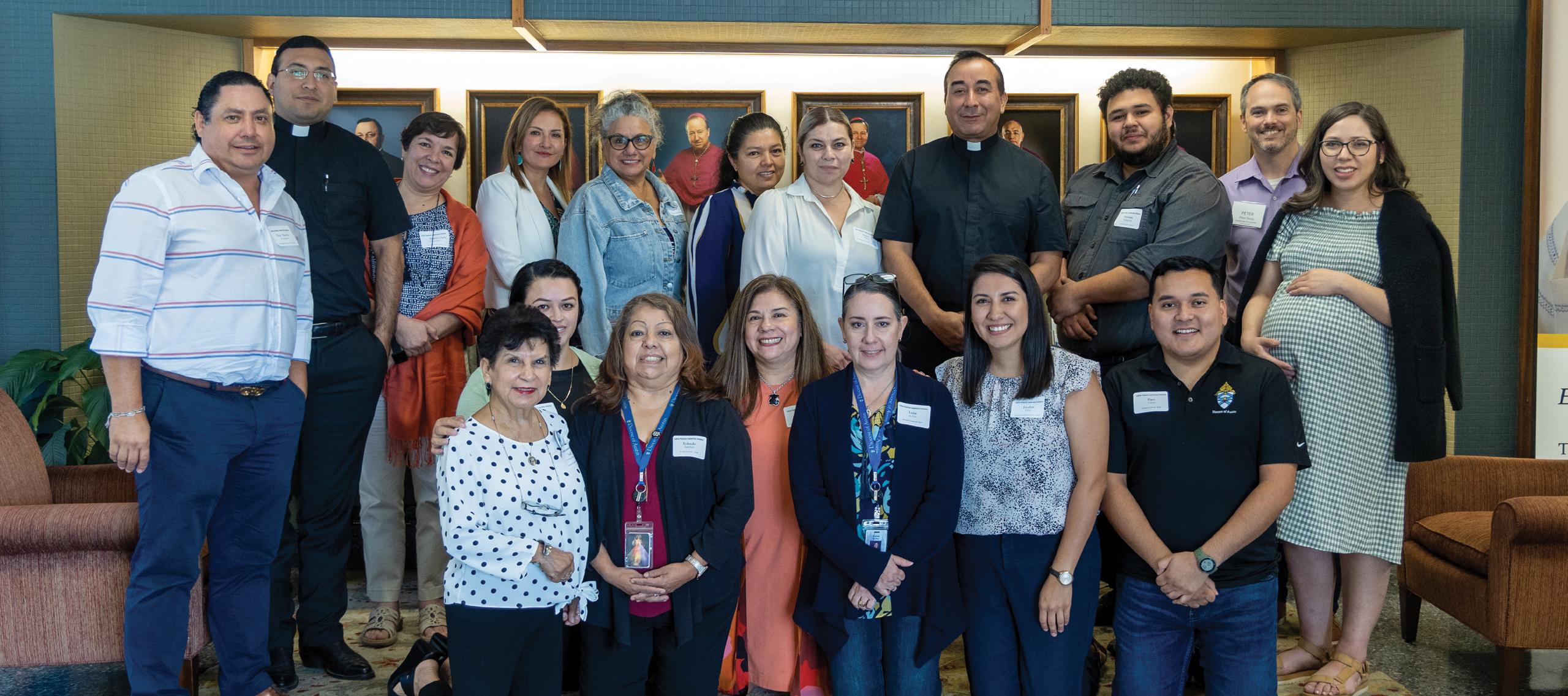
Leadership Roundtable created the Latino Pastoral Leaders Initiative in response to the need for formation of Hispanic/Latino Catholics that was identified as one of the top priorities for the future of the Church during the V Encuentro. The Initiative was developed in partnership with Lilly Endowment Inc., which generously provided funding through its Thriving in Ministry Initiative and with support from other donors.
Leadership Roundtable has historically recognized the many gifts and talents that Hispanics/Latinos bring to the Catholic Church in the United States and promoted Catholic institutions supporting Hispanic/Latino pastoral leaders to thrive in their vocations and, thus, supporting the well-being of the congregations in which they minister.
Throughout our work with Church leaders, Leadership Roundtable frequently encountered that Hispanic/Latino pastoral leaders disproportionately ministered in parishes with fewer financial resources, less trained pastoral support staff, and greater social challenges, including racial injustice and poverty, which can make pastoral leadership more challenging.
Fr. Juan Molina, president and CEO of the Mexican American Catholic College, said that “for too long, the Church has not benefited from the leadership talents of Hispanics/Latinos. For the Church to continue to grow and evangelize, it is vital that our Church continues the work begun with the V Encuentro to form leaders from the Hispanic/Latino community and welcome them to the leadership tables.” Fr. Molina is also a member of the National Advisory Committee for the Initiative.
Fr. Allan Figueroa Deck, SJ
Distinguished Scholar of Pastoral Theology and Latino Studies, Loyola Marymount University
Sr. Teresa Maya, CCVI Sisters of Charity of the Incarnate Word
Fr. Juan Molina
President & CEO, Mexican American Catholic College
Ms. Mar Muñoz-Visoso
Executive Director, Secretariat of Cultural Diversity in the Church, United States Conference of Catholic Bishops
Mr. Darius Villalobos
Director of Diversity and Inclusion, National Federation for Catholic Youth Ministry
To guide the program’s development and growth, Leadership Roundtable formed a National Advisory Committee that included well-respected Hispanic/Latino Catholic leaders from Catholic organizations, religious communities, and educational institutions within the United States. The members’ academic, professional, and pastoral expertise was reflected in the design, promotion, and implementation of the Initiative and the selection of participating dioceses, where many committee members also serve as presenters and peer group facilitators.
“In order to advance the mission of Christ in our local church, we must prepare future leaders by providing formational development, said Bishop Joe S. Vásquez of the Diocese of Austin. “Opportunities to learn, engage, and dialogue with others enables us to form disciples for our Church. I am grateful to those who have responded to this call to serve.”
Leadership Roundtable took care to design the Latino Pastoral Leaders Initiative as a comprehensive formation program that provides Hispanic/Latino leaders access to critical leadership skills while also addressing the complex pastoral environments where these leaders serve.
“What I see with the work of Leadership Roundtable is that we try to bring a sense of hope and opportunity even despite all of the Church’s challenges,” said Javier Bustamante, a former member of the National Advisory Committee and program facilitator in the Latino Pastoral Leaders Initiative. He also serves as Director of the Center for Cultural Engagement at The Catholic University of America.
“We have all these tools to make our Church responsive to the needs of our communities, to the needs of the faithful,” he continued. “That creates an opportunity and a sense of hope knowing that there are people working to make the Church more attentive and responsive.”
As the Diocese of Joliet’s Bishop Ronald A. Hicks told those who participated from his diocese, the engagement of Hispanic/Latino leaders in the program was vital to both the life of the Church and their personal development.
“One of the things you all learned in these courses was to use your own voice, that your voice is intelligent, and to use it for the good of the Church, for your lives, to grow in this leadership using your voice,” Bishop Hicks said. “Sometimes this scares us ... but God gave us all a voice and it is good to use
it in a beautiful and good way.”
The growing cultural diversity of the Church in the United States has emerged as a top theme during the ongoing global Synodal process, particularly how the Church welcomes, supports, and includes in decision-making Catholics of different races and cultures and how it addresses issues of historic and systemic racism.
The Synodal process that the Catholic Church began in 2021 invites us to understand, with a renovated vision, the world in which the Church operates and what weighs upon the hearts and minds of the People of God. Being missionary disciples meeting the people of God in the peripheries, ministries, parishes, and dioceses is a call for all Catholics.
Leadership Roundtable served as a collaborator with the United States Conference of Catholic Bishops (USCCB) and the Vatican on the diocesan phase of the Synod. Just days before our 2022 Catholic Partnership Summit in September, the USCCB released the results of the Synod in the U.S., allowing the leaders gathered to discuss the many issues raised by the People of God. Our Summit facilitated many key conversations that both supported and affirmed our work through the Latino Pastoral Leaders Initiative to form and promote the leadership of Hispanic/Latino Catholics in the Church.
Leadership Roundtable staff continues to learn as we accompany Hispanic/Latino leaders in their formation and had the opportunity to share these learnings at the annual convention of the National Association of Hispanic Priests (ANSH). Andrea Blanco, program manager of the Latino Pastoral Leaders Initiative spoke to more than 40 clergy gathered at the convention on the topic “Experiencia Sinodal: Perspectives from a Lay Leader in the Church,” offering perspective on the work of Leadership Roundtable to listen and engage with Hispanic/Latino priests that serve the growing and flourishing Catholic Hispanic community in the United States.
During 2022, Leadership Roundtable also participated in the 6th Hispanic Ministry National Congress, Raíces y Alas-Roots and Wings: Prophetic Voices, Be Bridges for a New Era. Listening to and sharing deeply with many Hispanic/Latino leaders on the top pastoral priorities for Hispanic ministry in the United States during this gathering further affirmed the productive
work accomplished throughout the Latino Pastoral Leaders Initiative and its response to the pastoral leadership formation.
In her opening keynote at the Congress, Mar Muñoz-Visoso, Executive Director of the Secretariat of Cultural Diversity in the Church at the USCCB, and a member of the National Advisory Committee, spoke about the importance of forming Hispanic/Latinos for leadership and the unique role the community serves in promoting unity within the Church.
“Latino Catholics, then, are called to be architects and engineers of those bridges and roads that are necessary in the Church and in today’s society. We are already doing it, but sometimes not with the force that the times demand or in accordance with our weight and presence in this Church and in this society. It is our time to take the baton!
For this reason, Latino Catholics in the United States also have a special responsibility, which is to help and work so that the vision of Pope Francis of a Church ‘outgoing’ that lives and operates in synodality, promoting communion, participation, and mission, and open to the promptings of the Holy Spirit that vision take root and also undertake in this pilgrim Church in the United States of America. In a way, it is our historical mission at this moment to translate his message and help the mass of this society to penetrate and ferment. Fidelity to the successor of Peter is a constitutive mark of our being Catholics.”
In addition to welcoming and including those of diverse cultural backgrounds in the life and leadership of the Church, the National Synthesis of the People of God in the United States of America for the Diocesan Phase of the 2021-2023 Synod published by the USCCB in 2022 also identified “Ongoing Formation for Mission” as one of the core themes that emerged from the synodal consultations with more than 700,000 Catholics in the U.S.
The formation of lay leaders in the Church is essential, said Bishop Vásquez.
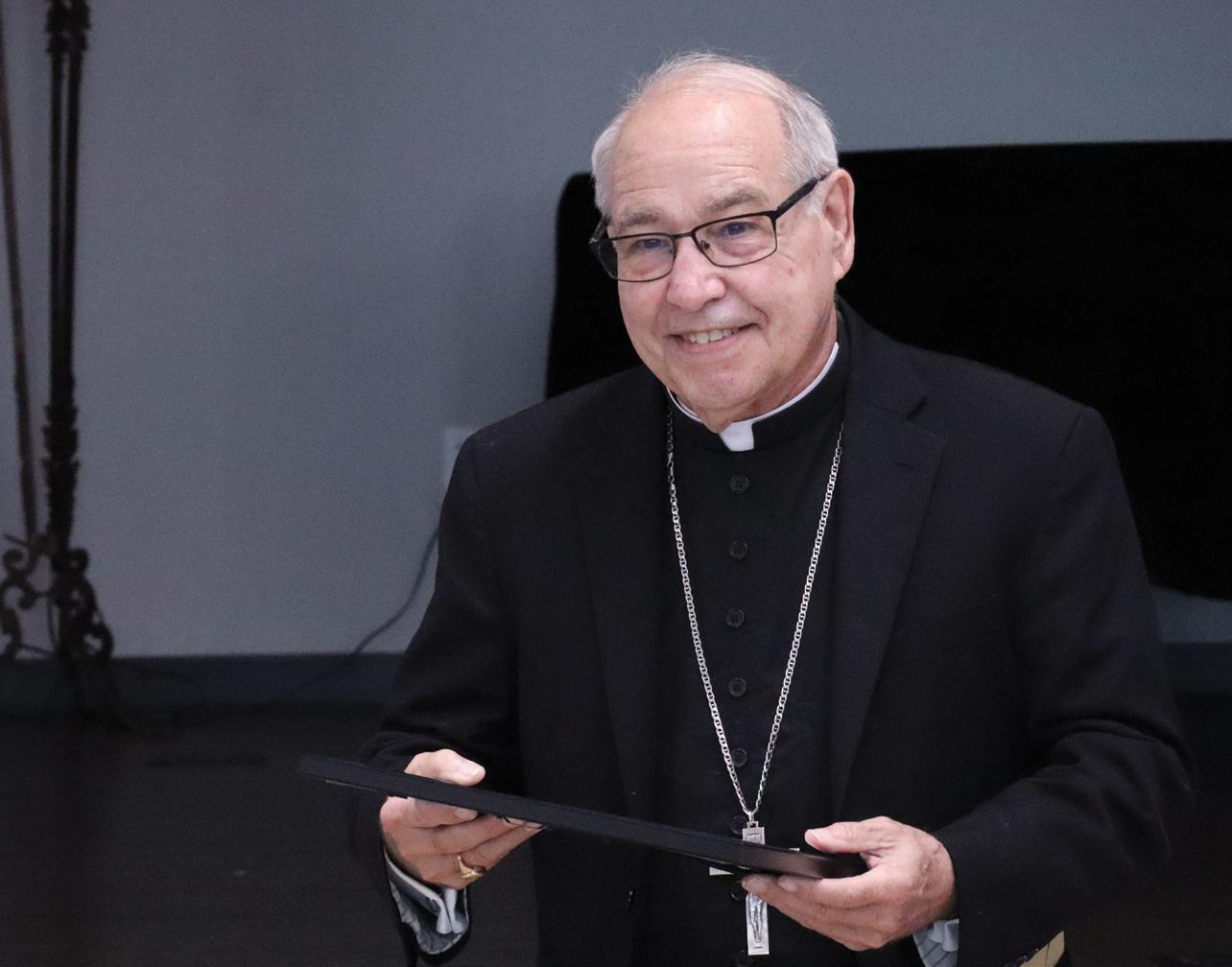
“We have invested a great deal of energy, resources for priests, clergy, and deacons to be well prepared to serve the people of God, but we have not always done a great job in supporting our laity, and it’s so important to have wellformed leaders,” he said.
Leadership Roundtable’s investment in the Latino Pastoral Leaders Initiative and our other programs demonstrates our commitment to assisting pastoral leaders’ lifelong leadership formation needs, including serving Hispanic/Latino Catholics in the U.S. Church.
“Sometimes as lay people, we wonder where we have permission to serve, but a big grace from this program was that the Lord is always inviting us to lead and that he is inviting us to lead as lay people,” said Jocelyn Perez, a participant in the Diocese of Austin and young adult campus minister serving the University of Texas-Austin University Catholic Center.
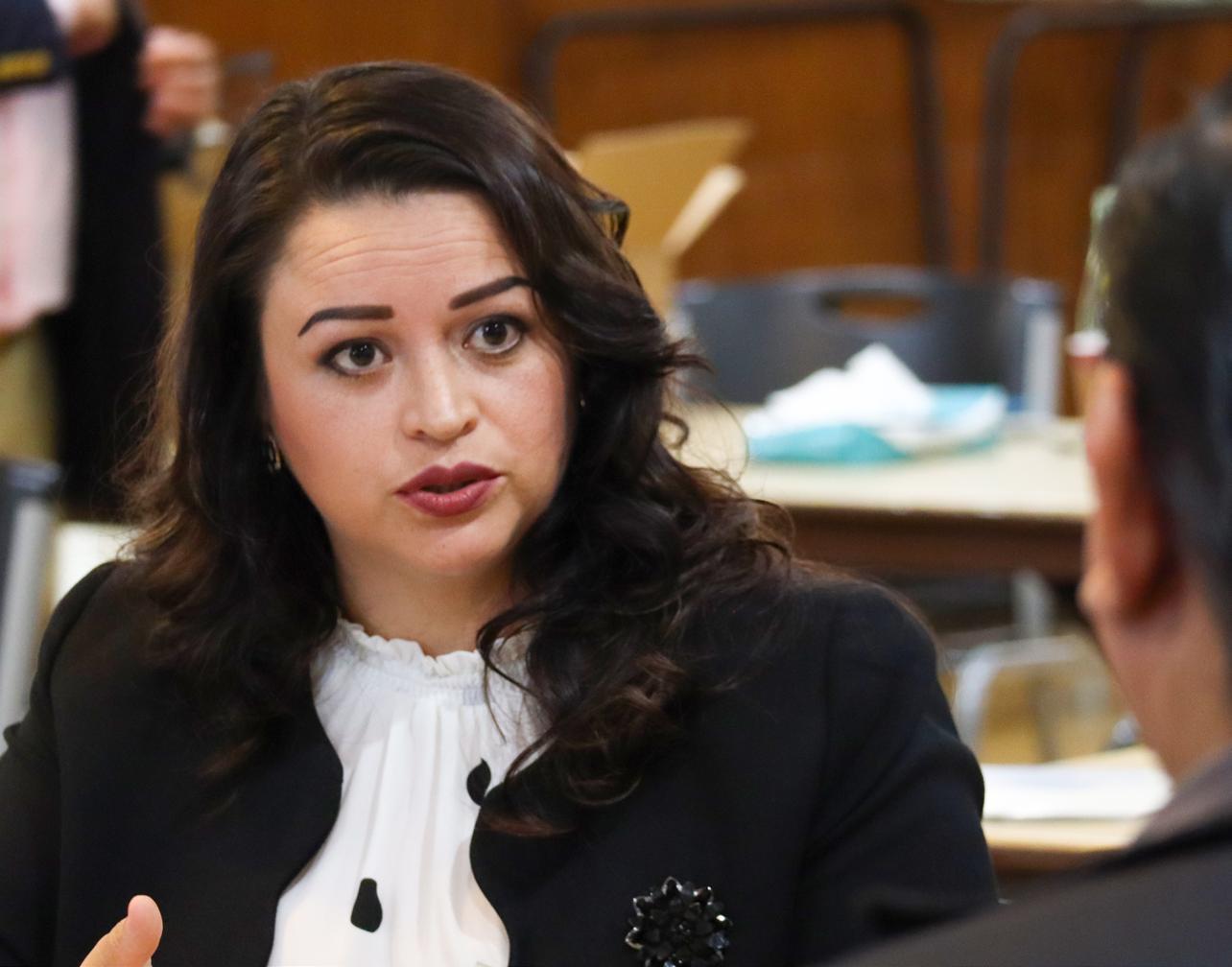
“The mission calls us to be united, to walk together, and with these resources, we can do that. We can be more united in Christ and do ministry for others in the right way,” said Norma Vélez de Garcia, a participant in St. Augustine and coordinator of Multicultural Youth and Young Adult Ministry for the diocese.
The Initiative not only benefits participants in their ministerial roles, but beyond, in their communities and professional lives. Judy Morales-Steinheimer, a participant in the Diocese of Austin and City Councilmember for the City of Temple, TX, realized that, as a leader, there is more she can do and greater impact and involvement she wants to have both in the Church and her community. The formation she received in the Latino Pastoral Leaders Initiative helped her to overcome fears and hesitations as a leader, and she is now working to help identify and form youth leaders at her parish and leads prayer at city council meetings.
“Being part of the Latino Pastoral Leaders Initiative has encouraged me to continue to do outreach in my community, knowing that the Holy Spirit will guide me and protect all our works,” she said.
In developing the Latino Pastoral Leaders Initiative, Leadership Roundtable worked to ensure that all program elements were culturally adapted, including creating materials in both English and Spanish, and were designed to respond to the many complexities Hispanic/Latino pastoral leaders face in day-to-day ministry. As part of the program, participants were invited to study, develop, and apply leadership skills and pastoral ministry competencies as well as understand the best practices in Church management and leadership. Participants engaged in the program both online and in–person and were welcomed to participate in the language in which they were most comfortable. Attending the trainings, workshops, and small group discussions in this way allowed greater flexibility for the leaders, many who were not full-time employees of the Church. The program elements included:
Catholic Leadership 360 — A leadership development process that uses a 360-degree assessment tool to provide respectful, structured feedback on key leadership competencies and behaviors that have been shown to contribute to the success of Catholic pastoral leaders. Participants use this
feedback to create a development plan for their leadership development throughout the Initiative.
Toolbox for Pastoral Management — A comprehensive introduction to the key elements of pastoral management in a workshop-style series of presentations that provide practical, ready-to-use tools.
Catholic Standards for Excellence — Training in a comprehensive set of managerial best practices designed to assist parishes, dioceses, and Catholic organizations in their operations to help leaders advance the Church’s mission.
Peer Group Coaching Sessions — Monthly sessions that allow participants to tap into the wisdom of their colleagues, guided by an experienced facilitator. These sessions provide a forum to explore further and synthesize pastoral skills and leadership concepts learned in the other program elements.
“It is a person-based training that involves so many skills and technical training,” explained Miguel Galeano, a participant in the Diocese of St. Augustine. “The small groups allowed us to develop confidence, share our challenges, and support each other … We felt that we were not alone and that we are one Church, which makes us more proactive within our ministries.”
An essential element of the Latino Pastoral Leaders Initiative is conducting a regular and robust evaluation of all program elements, the participant’s experience, the growth of individual participants, and the sustained impact beyond the cohort experience.
When asked at the conclusion of the Initiative whether the Latino Pastoral Leaders Initiative gave them confidence to seek out future ministry leadership roles, 100 percent of participants in the Diocese of St. Augustine responded “absolutely” or “very much so.” Similarly, when asked if the Initiative increased their effectiveness in meeting their ministry leadership goals, 100 percent of participants in the Diocese of Austin responded “absolutely” or “very much so” and when asked if the Initiative increased their confidence to negotiate challenges in their ministry, 100 percent of the participants in the Diocese of Joliet responded “absolutely” or “very much so.”
As a part of a rigorous evaluation program to evaluate the sustained impact of the Initiative, Leadership Roundtable
engaged a third-party organization to conduct a mixedmethods impact assessment study utilizing both quantitative (survey) and qualitative (interview) data from the participants six-months following the conclusion of the Initiative. At the time of this report, this study has been completed for the first two cohorts, the Diocese of Joliet and the Diocese of St. Augustine. The researchers’ findings are positive and powerful.
For the cohort in the Diocese of Joliet: “Considering the Latino Pastoral Leaders Initiative is a prototype, with no precedent as a program, its reception and impacts are exceptionally impressive. The content is strong and especially appreciated by lay leaders, both volunteer and professional. Participant satisfaction is very high, and the program shows very positive outcomes in terms of individual leaders’ learning, behavior, and results.”
For the cohort in the Diocese of St. Augustine: “The results of this study indicate that the Latino Pastoral Leaders Initiative has become an even stronger program after its successful start, with stellar results across many categories and improving outcomes in those areas previously identified as needing attention.”

Leadership Roundtable remains committed to rigorous evaluation and continuous improvement from the invaluable feedback of participants.
One measure of participant satisfaction measured in this study is the Net Promoter Score (NPS). NPS quantifies the
likelihood of a person recommending an organization or service to a friend or colleague. As such, it is a good proxy for enthusiasm. In the Diocese of Joliet, participants rated the Latino Pastoral Leaders Initiative with an NPS of 67 and in the Diocese of St. Augustine, an NPS of 86. By contrast, the average American business elicits an NPS of 10, with high performing businesses producing an NPS of 50-80. Average nonprofit NPS scores vary by sector though generally tend to be higher overall than that of for-profit companies. With above average NPS scores, the Initiative has generated not only satisfaction but also enthusiasm among the participants.
“To me, the best part of the initiative has been the people that I’m able to meet here, the network of the exemplary disciples and apostles of Christ,” Clara Sowers, a participant in the Diocese of St. Augustine, shared. “How much the Holy Spirit is involved in this program has been a constant surprise for me.”
“If you have the opportunity to participate, you should do so, as it makes you see yourself differently, that there is more potential than you think you have,” said Williams Toledo, a participant in the Diocese of St. Augustine.
“The program impacts the church positively by empowering its leaders and training them to be more effective in their role. More people should participate to strengthen their leadership skills and be more effective and inspire more potential leaders,” said Luz Guerrero, a participant in the Diocese of St. Augustine.
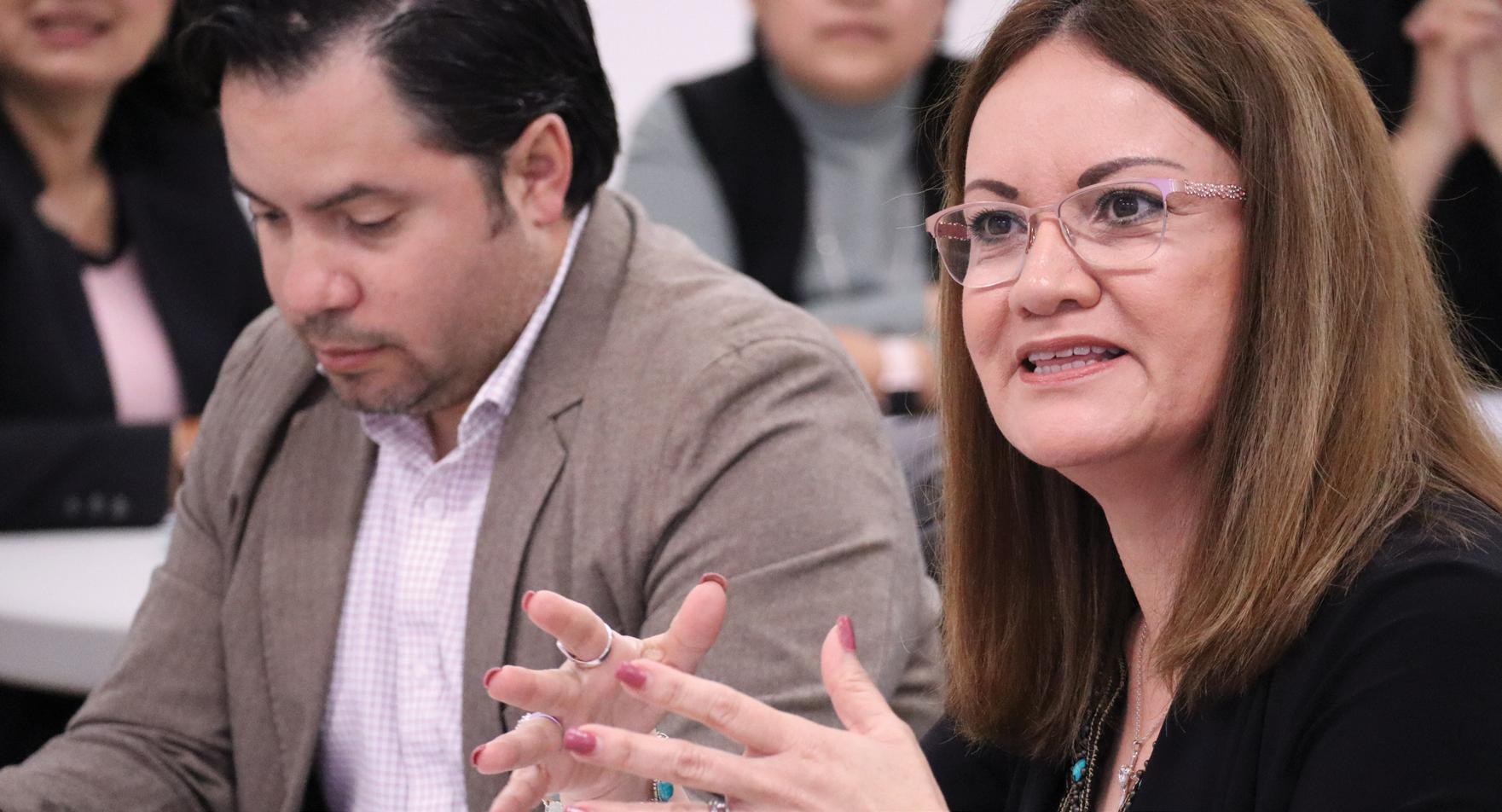
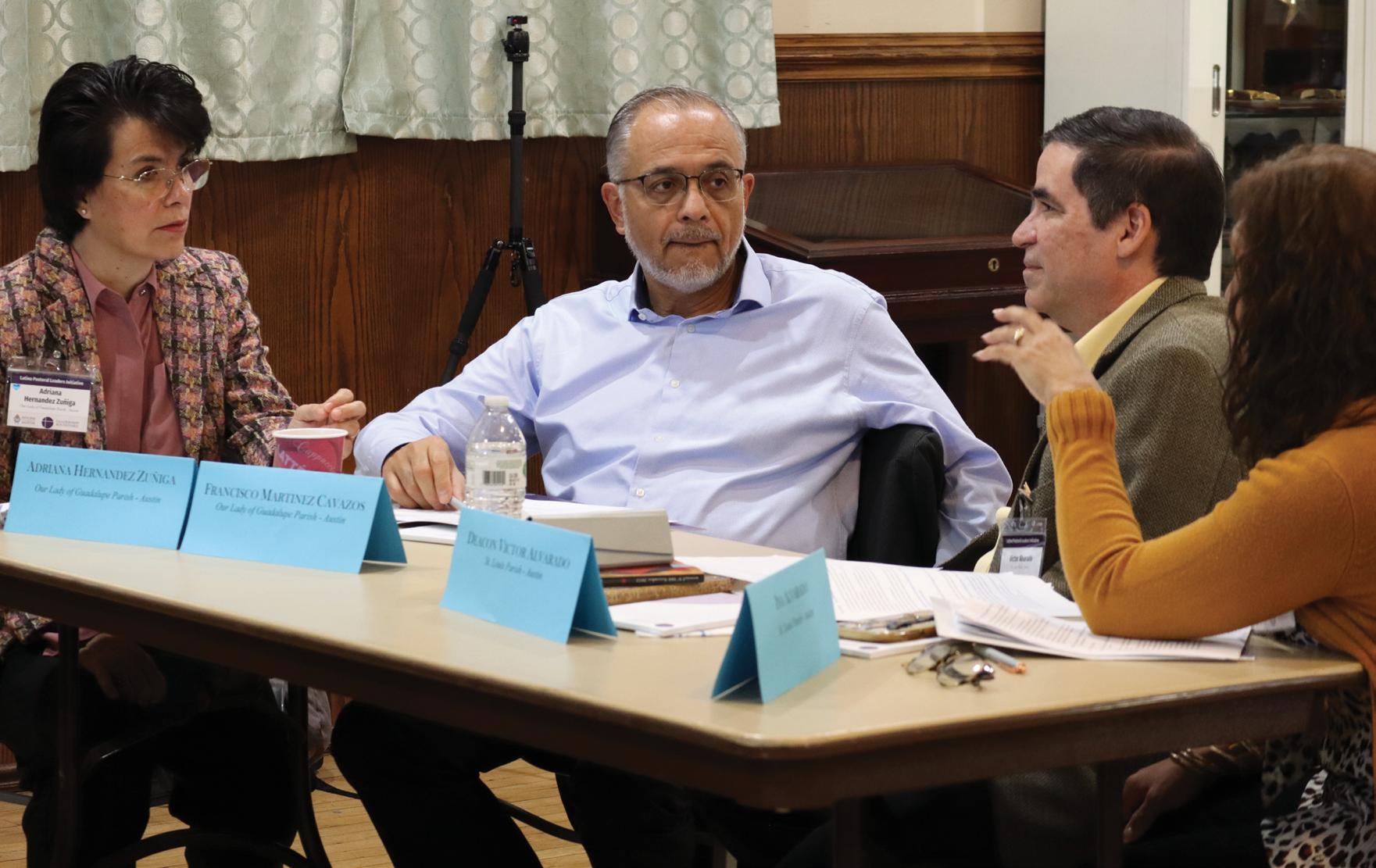
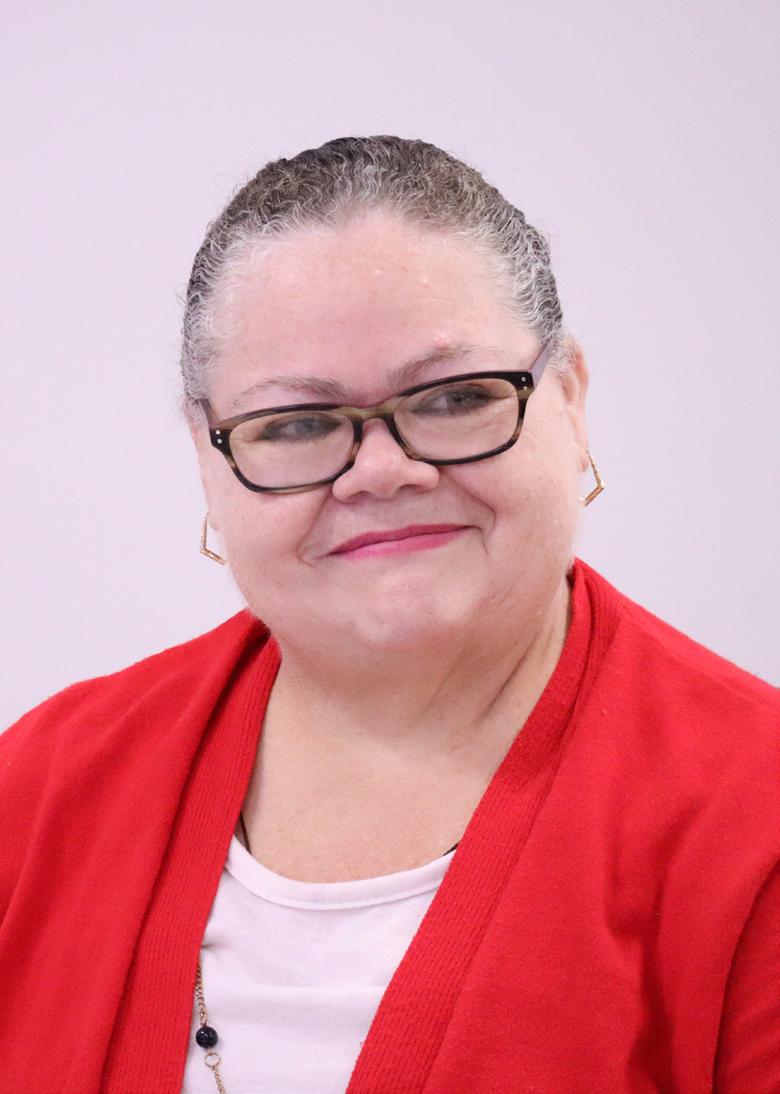
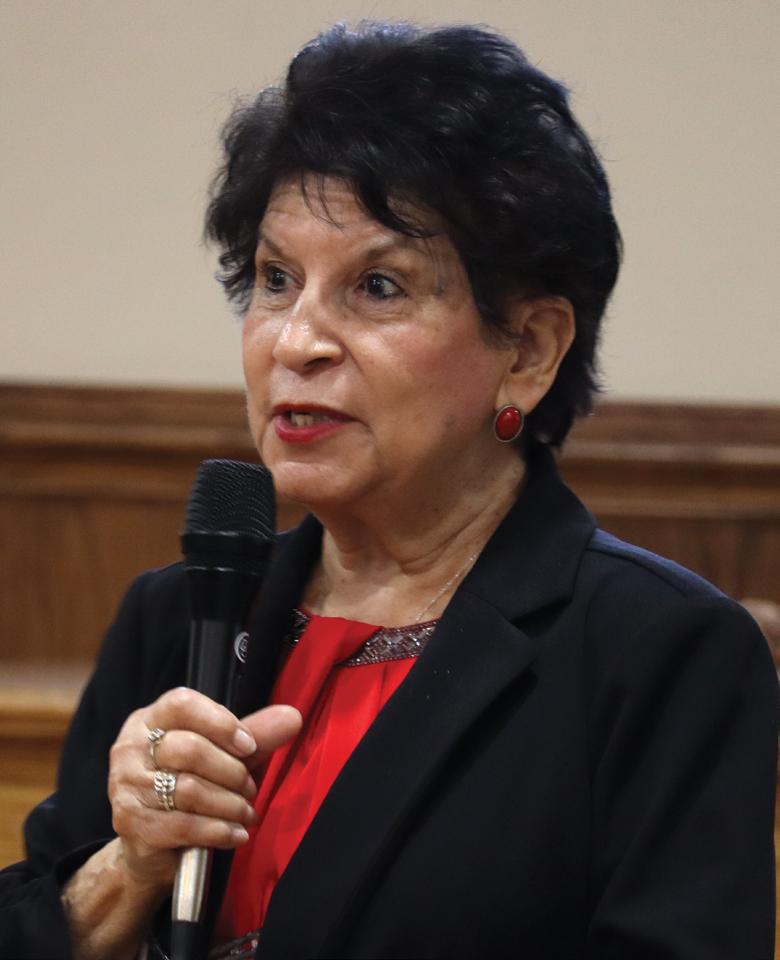
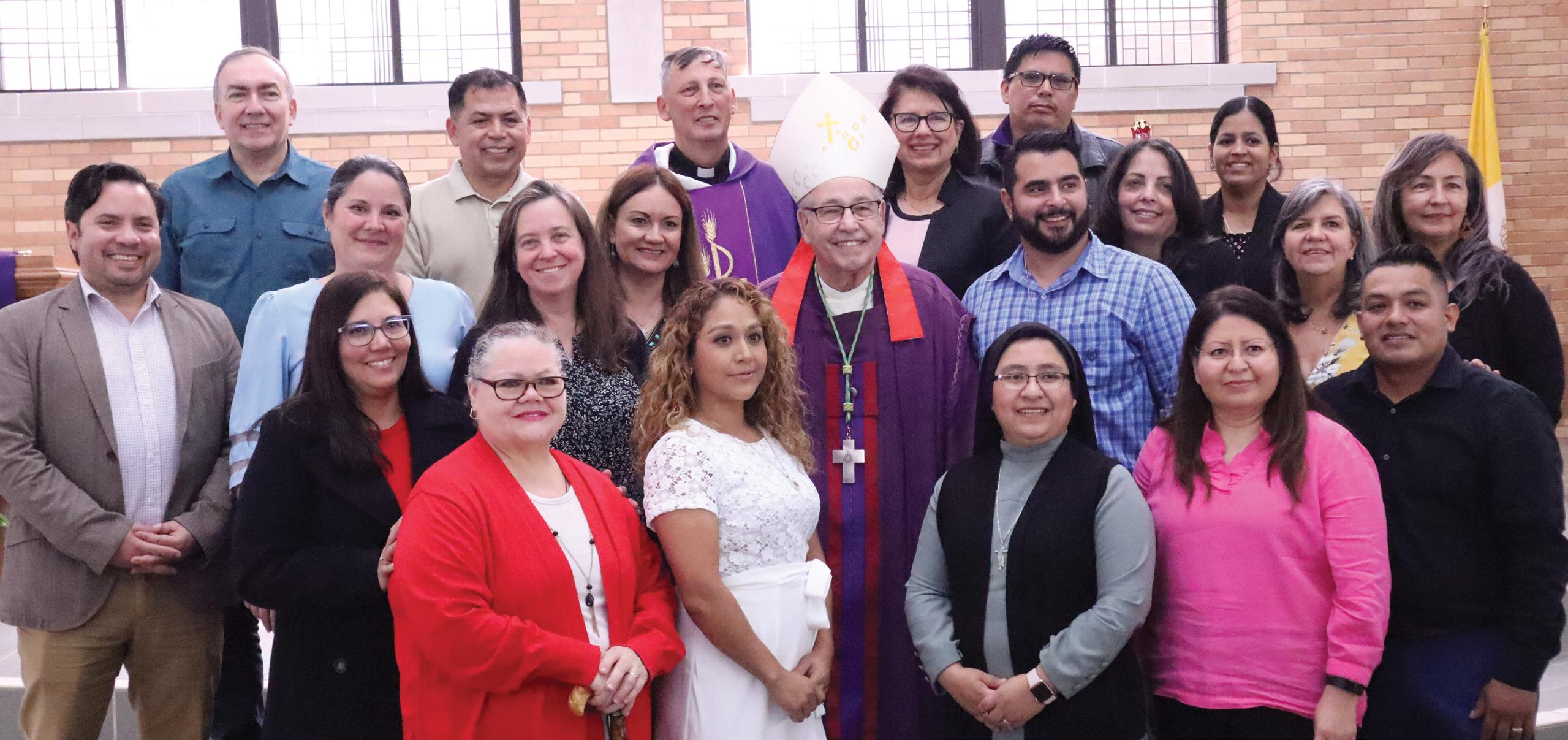 Diocese of St. Augustine Cohort
Betzaida Vélez Diocese of St. Augustine
Judy Morales-Steinheimer Diocese of Austin
Larry Rodriguez and Norma Vélez de Garcia Diocese of St. Augustine
Diocese of St. Augustine Cohort
Betzaida Vélez Diocese of St. Augustine
Judy Morales-Steinheimer Diocese of Austin
Larry Rodriguez and Norma Vélez de Garcia Diocese of St. Augustine